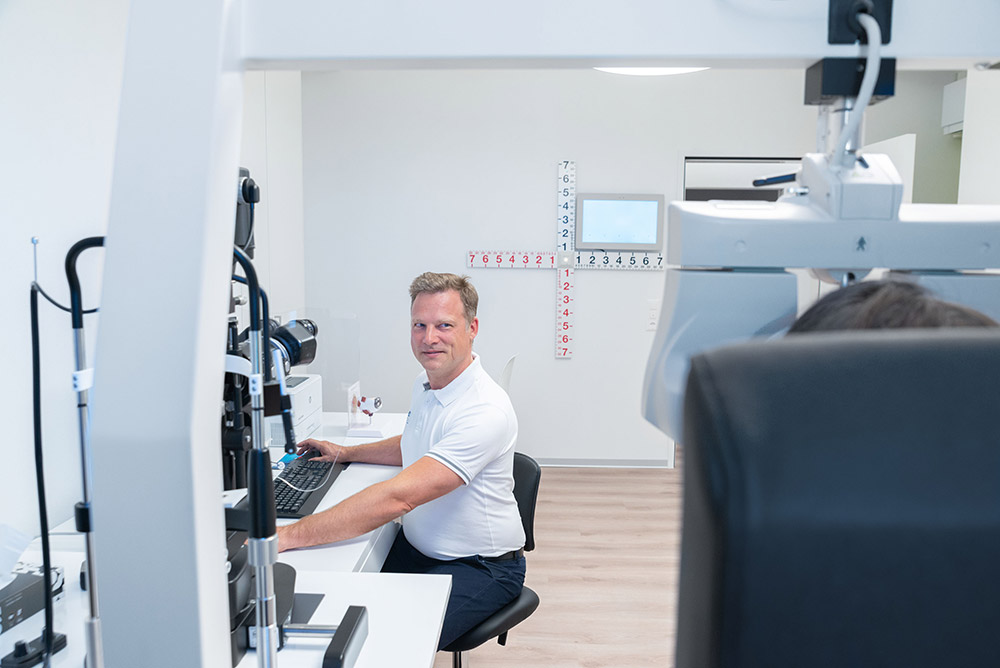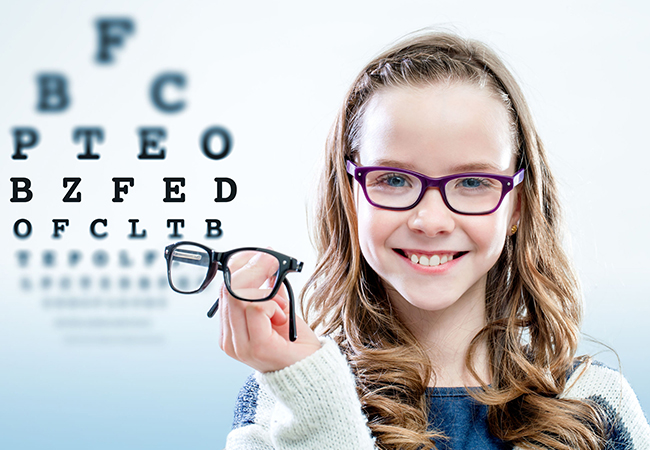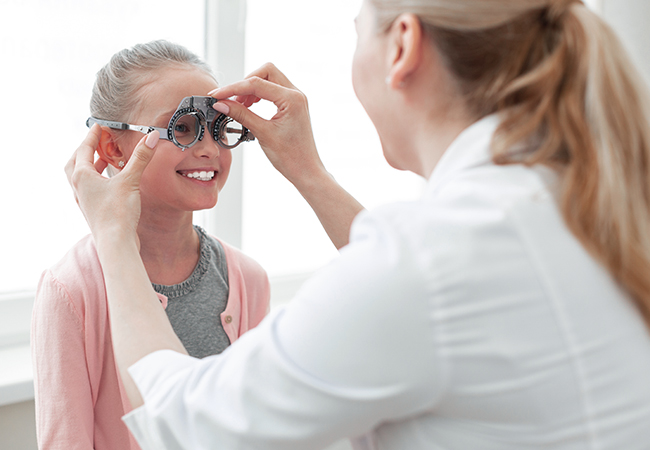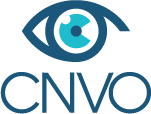Difficulty in seeing clearly at close range or at a distance, eye fatigue, sensitivity to light, headaches and neck pain are often signs of reduced visual acuity. Various visual disorders may be responsible, such as myopia, hyperopia or astigmatism.
From the age of 40 onwards, vision changes more markedly due to the onset of presbyopia, which results in difficulty in seeing well at close range. This is a completely natural phenomenon, linked to the progressive loss of flexibility of the crystalline lens: the eye finds it increasingly difficult to accommodate.
At the first sign of trouble, have your vision checked by a specialist ophthalmologist.


View correction
There are two main categories of reasons for poor eyesight:
- An eye disease or abnormality
- A defect in the optical system of the eye that is not otherwise diseased or abnormal.
In the first case, appropriate medical or surgical solutions must be used.
In the second case, the solution is optical: the defect must be compensated for by glasses or contact lenses. We can also use surgery or laser treatment.
An ophthalmological examination is essential before any prescription of optical correction.
Refractive disorders
Optical corrections are aimed at the following defects:
Myopia
It is characterised by poor distance vision, while near vision is good. It often appears in childhood and tends to increase with age.
Hyperopia
Vision is only sharp with an effort of accommodation, which decreases with age. Vision then becomes blurred at both distance and near. This can lead to visual fatigue or headaches, and sometimes to strabismus.
Astigmatism
Vision is not sharp at any distance. Astigmatism can be isolated or associated with myopia or hyperopia.
Presbyopia
From the age of 40 onwards, vision becomes blurred at close range, as the power of accommodation diminishes.
Prescription of glasses and lenses
After carefully examining the health of your eyes, your ophthalmologist will give you a prescription for your glasses or contact lenses.
Children are growing and their correction changes. Therefore, their eyes should be checked every year by an ophthalmologist. In addition, glasses should be regularly checked and adjusted by an optician to ensure optimal comfort for the wearer.


